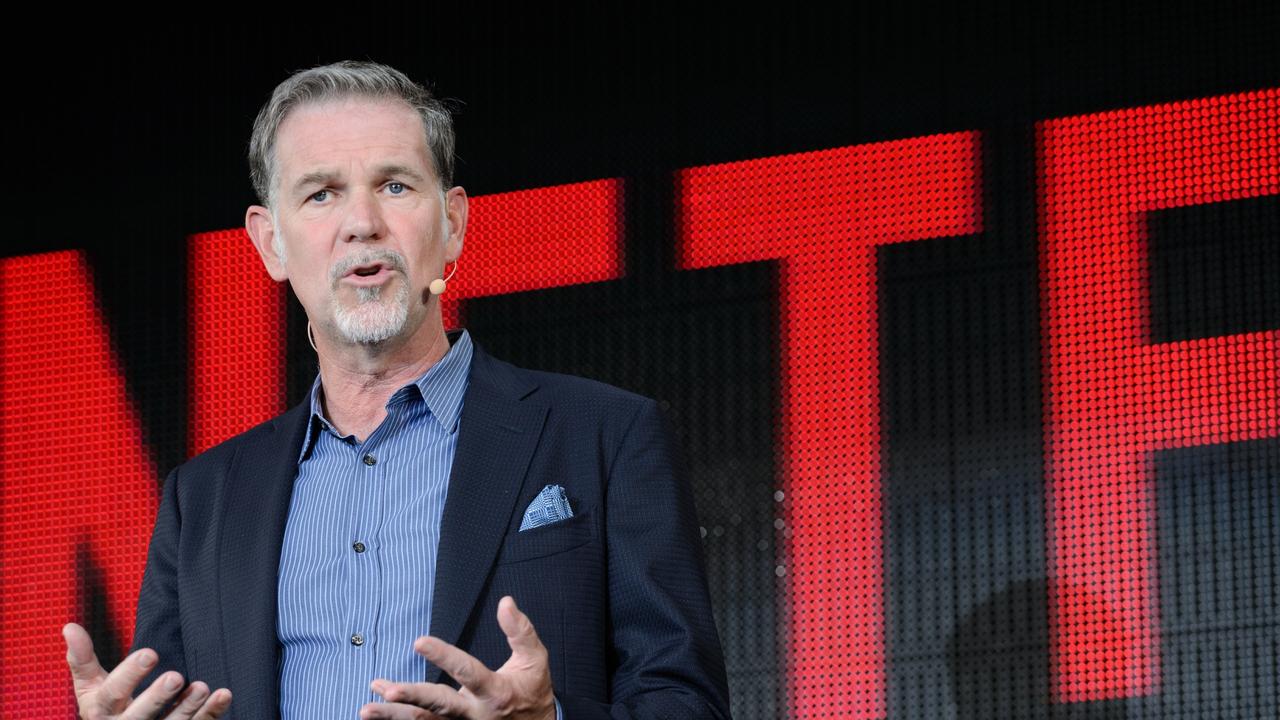What Netflix advertising and password sharing crackdown means for customers
Netflix’s very bad week could mean radical changes for the streaming service and its millions of Australian customers.

Netflix customers are about to face a set of previously unthinkable changes after the streaming behemoth revealed disappointing financial results earlier this week.
With Netflix losing subscribers for the first time in a decade, it calls for drastic action as it fights a confidence crisis from investors who are looking at the company and wondering if it’s still a good bet for growth.
In the immediate aftermath of the news it lost 200,000 subscribers in the three months to March 31, and expects to churn another 2.4 million in the current quarter, its stock price plummeted 25 per cent, equating to roughly $54 billion of Netflix’s market value.
That’s a massive chunk of change to lose.
What this translates to for customers is Netflix will need to find other ways to make sure it continues to make more money, which tells the market that it is still a good investment despite a maturing streaming market and increased competition.
While nothing is confirmed on what those actions may be, Netflix’s bosses made revealing comments that signal what changes customers should expect, including one move that had previously seemed impossible.
Advertising
Netflix founder and co-chief executive Reed Hastings has always been against introducing advertising on the subscription-based streaming platform. As recently as January 2020, Hastings had ruled out such a move and said there was “no easy money there”, citing challenges including Google and Facebook’s dominance, privacy and data integration.
Hastings said at the time, according to Variety: “We want to be the safe respite where you can explore, get stimulated, have fun, enjoy, relax – and have none of the controversy around exploiting users with advertising.”
Want a streaming service dedicated to news? Flash lets you stream 25+ news channels in 1 place. New to Flash? Try 1 month free. Offer ends 31 October, 2022 >

Well, when you’re looking around for new revenue streams, even uneasy money is still money.
Hastings this week flagged that advertising is now very much in Netflix’s future, and it could be rolled out within the next two years.
How it would likely work is Netflix would introduce a cheaper, ad-supported tier. The idea is you pay less and in return, you have to sit through some ads. It’s unlikely to be at too-high a volume per hour, such as the 18 minutes per hour that run through broadcast TV.
Subscription fees have increased to $10.99 for the most basic plan to $22.99 for the premium option (which includes 4k quality and more simultaneous streams), so some customers may decide to opt for an ad-supported version.
Ad-supported streams would be an easier pill to swallow for customers who may already be heavy consumers of BVOD (broadcast video on demand) services such as free-to-air TV catch-up apps.
Hastings framed Netflix’s about-face as one of consumer choice. He said: “Those who have followed Netflix know that I have been against of the complexity of advertising, and a big fan of the simplicity of subscription.
“But as much as I am a fan of that, I am a bigger fan of consumer choice. And allowing consumers who would like to have a lower price, and are advertising-tolerant, get what they want, makes a lot of sense.”

Several of Netflix’s American rivals already have ad-supported options, including Hulu, Paramount+ and Peacock. And Disney, which previously ruled out advertising on its streaming platform Disney+, has confirmed it will introduce an ad-supported model globally in 2023.
In terms of how much cheaper an ad-supported Netflix might cost, existing plans at rival streamers may give an indication. In the US, Paramount+’s ad tier costs $4.99, which is half the price of its no ads plan. Hulu’s ad-supported option comes in at $6.99 a month compared to its no ads option at $12.99.
Password sharing
We all know someone who shares their Netflix password with someone who isn’t strictly in their household, and perhaps in exchange, they’re mooching off their mate’s Disney or Stan account.
Anecdotally, it’s common practice and now we know to what extent. Netflix revealed 100 million of its 222 million members share their passwords beyond their households, and it’s something it’s likely to crack down on.
Hastings said that password sharing wasn’t previously a priority for the company because it was growing so fast, but now that sign-ups haven’t just slowed but gone backwards, the practice is in Netflix’s sights.
“Now we’re working super hard on it,” Hastings added.

Since March it has been testing a feature in Costa Rica, Peru and Chile, which if successful will be rolled out to other markets.
Account holders in those three test countries are being charged an extra fee (between $3 to $4 per month) for every extra household (maximum two) that is using one subscriber’s login details.
There is also the option to transfer an existing profile’s viewing history to either a new account or an “extra member” account so that algorithmic recommendations remain intact.
A blog post on Netflix’s website said of password sharing, “While these have been hugely popular, they have also created some confusion about when and how Netflix can be shared. As a result, accounts are being shared between households – impacting our ability to invest in great new TV and films for our members”.
There is no timeline on when the crackdown on password sharing will happen on a global level but it does seem inevitable. The challenge will be whether any extra money Netflix makes from new or extra subscribers will balance out the customers who will cancel their memberships out of either higher costs or resentment.






